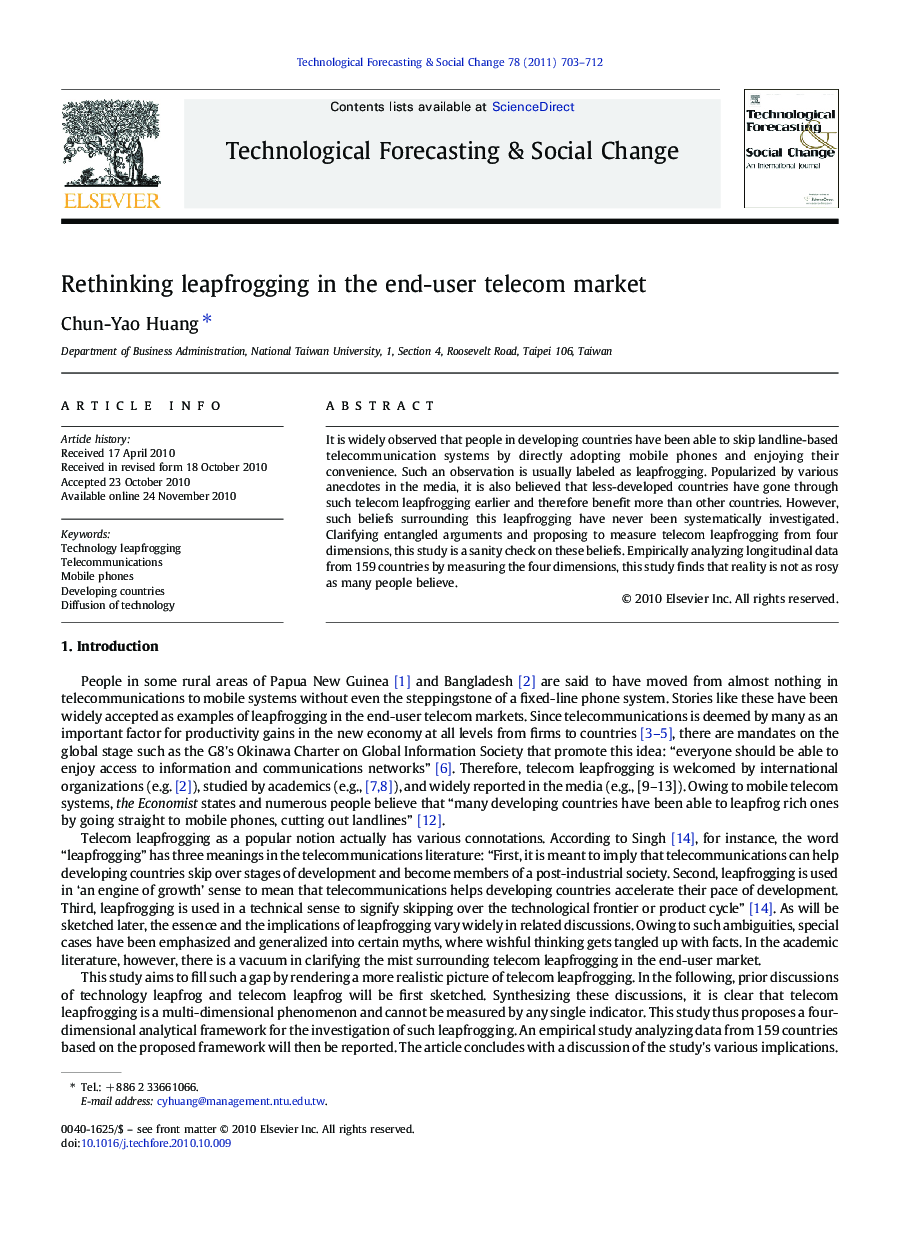| Article ID | Journal | Published Year | Pages | File Type |
|---|---|---|---|---|
| 897113 | Technological Forecasting and Social Change | 2011 | 10 Pages |
It is widely observed that people in developing countries have been able to skip landline-based telecommunication systems by directly adopting mobile phones and enjoying their convenience. Such an observation is usually labeled as leapfrogging. Popularized by various anecdotes in the media, it is also believed that less-developed countries have gone through such telecom leapfrogging earlier and therefore benefit more than other countries. However, such beliefs surrounding this leapfrogging have never been systematically investigated. Clarifying entangled arguments and proposing to measure telecom leapfrogging from four dimensions, this study is a sanity check on these beliefs. Empirically analyzing longitudinal data from 159 countries by measuring the four dimensions, this study finds that reality is not as rosy as many people believe.
Research Highlights► A sanity check for the popular arguments surrounding telecom leapfrogging. ► Telecom leapfrogging in the end-user markets has three layers of meanings. ► Longitudinal data from 159 countries is utilized for the empirical study. ► Developing countries didn’t move ahead of developed ones in the time of leap. ► The “pass-over” connotation of leapfrogging is a myth rather than a truth.
